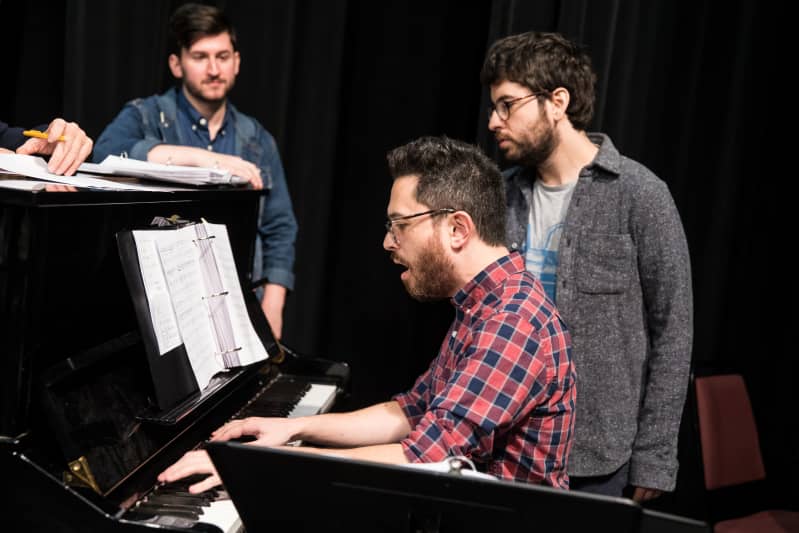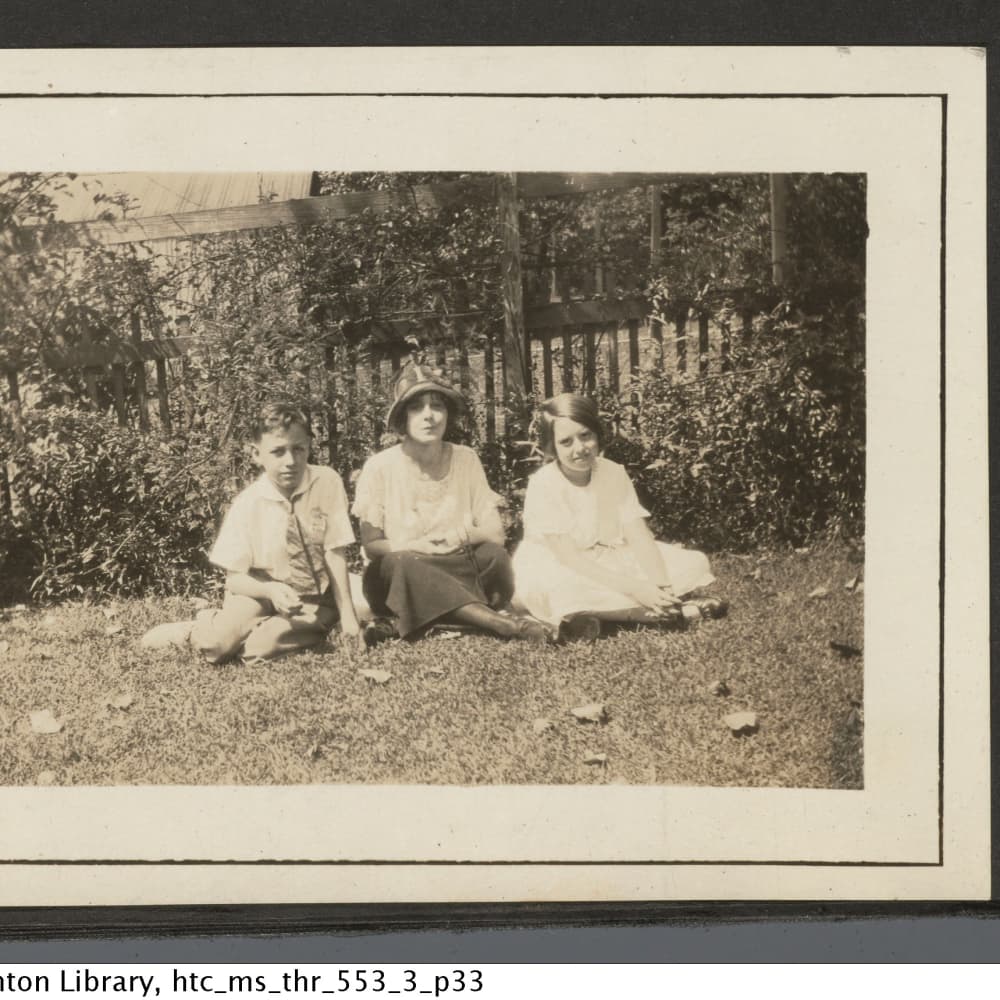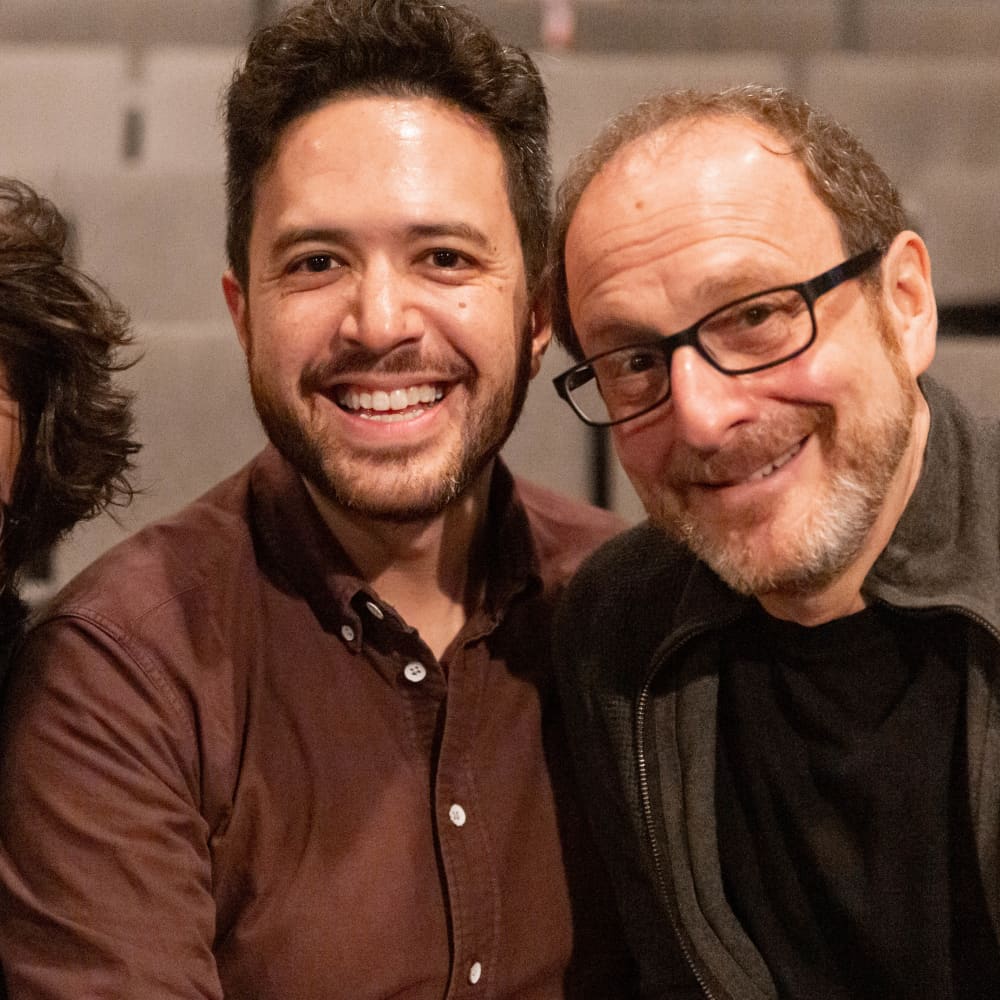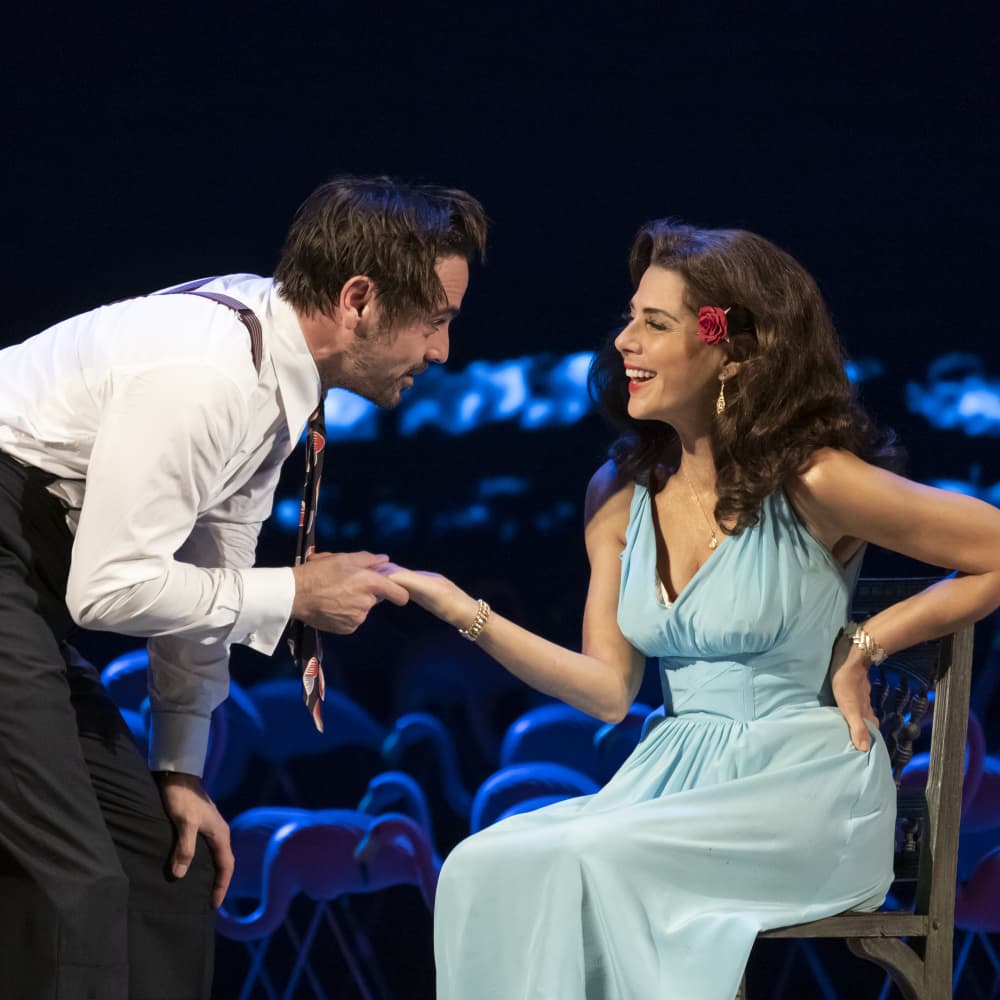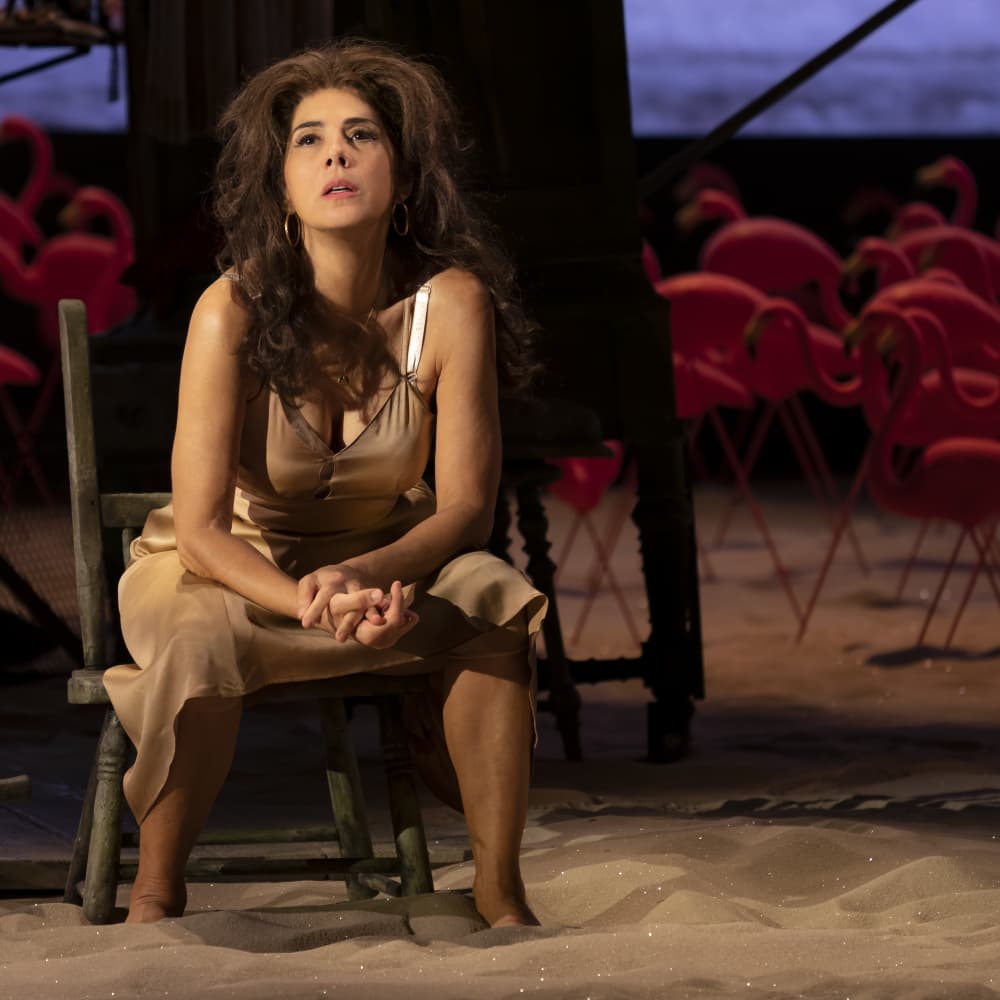Scotland, PA:
An Interview with Adam Gwon and Michael Mitnick
Posted on: October 7, 2019
Education Dramaturg Ted Sod spoke with composer and lyricist Adam Gwon and book writer Michael Mitnick about their work on Scotland, PA.

Adam Gwon & Michael Mitnick
TED SOD: Where were you born and educated? Did you have any teachers who had a profound influence on your decision to write for the theatre?
ADAM GWON: I was born in Boston but grew up in Baltimore from the time I was two. I went to high school at Carver, a public magnet school for the arts. I went to college as an acting major at NYU and had a teacher my freshman year who overheard me playing the piano, pulled me aside, and said: that’s where your voice is. He was a composer, and he died that year, and shortly after I started writing with his words in my ear.
MICHAEL MITNICK: I was born in Pittsburgh, PA. I went to Fox Chapel, a public high school with a strong extracurricular theatre program led by Craig Cannon and Sally Meyers. They made me feel I had value. In graduate school, Paula Vogel, Lisa Kron, John Guare, and Lynn Nottage cracked open my brain. My mentors, though they might not want that designation, were Lynn Ahrens and Stephen Flaherty. I was their gofer on four projects at Lincoln Center, and they taught me to write shows that tell a dramatic story with essential songs that advance character or plot.
TS: What do you feel the musical Scotland, PA, is about? Does the material have personal resonance for you, and if so, how?
MM: The musical is based on the movie of the same title, which is based on the Scottish play, which is about ambition. Who doesn’t look around and say, “If only I had X, my life might be better?” That’s our show’s central theme, though I’d maybe paint it a little sunnier: What little do we need to be happy?
AG: I love that the story in our version doesn’t start with generals and noblemen; it’s set in a forgotten, working-class town. When I think of ambition, I think of the American Dream, and these are characters who’ve been denied their ambition, denied that shiny American promise of greatness. So they try to wrest it back. Ambition and greed, assertiveness and aggression, justice and revenge, they are points on the same spectrum. We are always walking these lines.
TS: Adam, how did you decide what the score for Scotland, PA, would sound like? What kind of research did you have to do in order to write it?
AG: The film studio had only one request when we pitched them our adaptation: that we keep the story rooted in the 1970s. Happily, that was never a question for me. Pop music of the ‘70s has such a broad, exciting palette. Even the radio hits are harmonically interesting and unabashedly theatrical. I listened to a lot before I started writing — Bad Company, The Eagles, Lynyrd Skynyrd, David Bowie, Queen, The Carpenters, Elton John.
TS: Can you give us a sense of your individual process? What was the most challenging part of adapting Scotland, PA into a musical? What was the most fun?
AG: For me, music and lyrics come at the same time, and I work closely with my book writer to make sure we’re building a cohesive world. The biggest challenge was figuring out the exact way that musical theatre songs spill out of these characters’ mouths. We wanted there to be something unpolished and a little off-center about how and what they were singing, a specific point of view.
MM: I’d studied Shakespeare’s play in college and obsessively watched Billy Morrissette’s film in high school. Adam and I had many conversations in person before any writing took place. My goal was to write as economically as possible to connect plot dots and then get out of the way so Adam’s songs can carry the story.
It stinks writing a musical for characters who lack motivation. While pop and rock work well with the idea of “I don’t want X” and “screw Y,” musicals work better when there is a positive goal. In our show, Mac is essentially fine being exploited by life as long as he’s drunk and with his love Pat, so what’s the big deal? The fun was the challenge of figuring how to activate him while still portraying a stoner/slacker.

Michael Mitnick
© Jeremy DanielTS: How are you collaborating with Lonny Price, the director?
MM: Lonny has the rare gift as a director of simultaneously living inside the work as a character, playing out the work as an actor, and overseeing the entire experience as the audience. Writing a musical based on the Scottish play is tricky because it’s a tragic story that can bend rather unsympathetically away from our main characters. We need people on Mac and Pat’s side as they kill people and get greedier. Lonny was a compass that guided us through the musical tone.
AG: We connected with Lonny early in the process, before we’d even finished the first draft. One of the first things he did was get us thinking about a physical production. We built the Act One finale after Lonny told us what he thought the set should look like. That combination of dramaturgical insight and big vision is invaluable on a new work.

Adam Gwon, Michael Mitnick, and Lonny Price
© Kevin YatarolaTS: Who or what inspires you as an artist?
MM: A work that contains genuine surprise. A story that is actually dramatic. A song that goes to both unexpected and inevitable places.
AG: My collaborators, a perfect rhyme, and a well-made plot.

Adam Gwon
© Jeremy DanielTS: What advice would you give to a young person who wants to write for the theatre?
MM: Don’t give up, but write a lot. Read at least 30 novels a year. You may have to write a lot for a very long time that goes on and on and into your thirties and your friends now have very nice houses on very nice bodies of water, but sooner or later, you will have the chance to share your writing in a professional setting.
AG: Be steadfast in your pursuit of craft, but flexible enough to know when it’s getting in the way of doing something surprising.
TS: What other projects are you currently working on?
AG: I’m working on commissions from Playwrights Horizons, South Coast Repertory, and the Kimmel Center in Philadelphia. I’m kind of behind, so if you see me after the show, remind me that I should get home to write.
MM: Teaching my dog Mabel that at a point in the near future she will stop receiving treats for going to the bathroom. I don’t get treats when I do, and neither should she.

